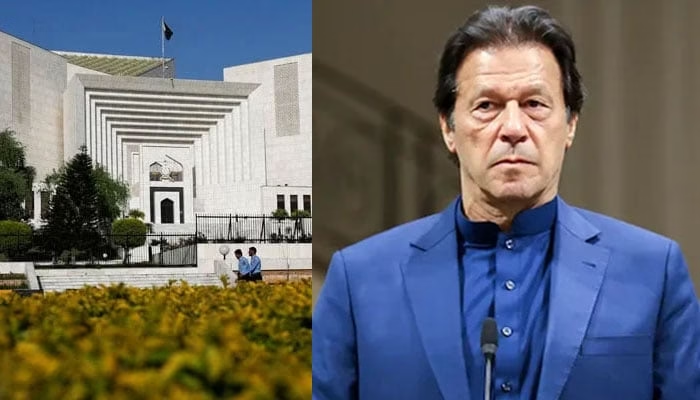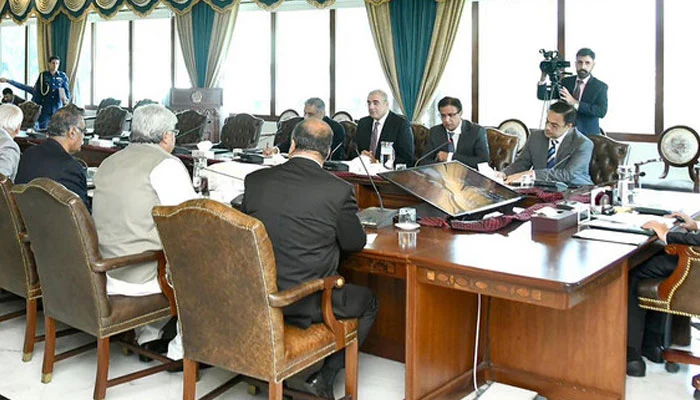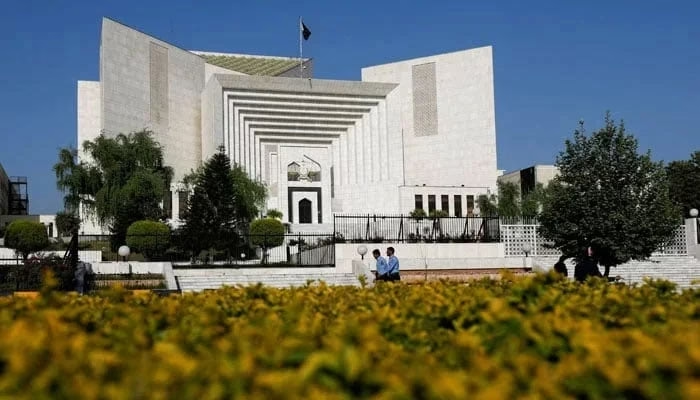The Supreme Court of Pakistan has sought a detailed response concerning the government’s decision to prosecute Pakistan Tehreek-e-Insaf (PTI) founder Imran Khan for contempt of court. The case revolves around the events of May 25, 2022, when the PTI led a long march towards Islamabad, allegedly in violation of court orders.
Government Pushes for Hearing
The Supreme Court’s Constitution Bench convened to address the government’s contempt petition against Imran Khan. Present during the hearing were Imran Khan’s legal counsel, Salman Akram Raja, and the Additional Attorney General. The court inquired whether the government intended to proceed with the petition, to which the Additional Attorney General affirmed their commitment to pursuing the case.
This statement underscored the government’s seriousness in holding Imran Khan accountable for what it alleges to be a deliberate violation of judicial directives.
Contempt of Court Allegations
The crux of the government’s case is that Imran Khan defied court orders during the May 25, 2022, long march. At the time, the court had issued specific directions, which the government claims were not followed by the PTI leadership.
Justice Aminuddin, heading the constitutional bench, emphasized the gravity of contempt cases, stating that they pertain directly to the relationship between the court and the individual accused of undermining its authority. He noted that if the court chooses to take notice of the alleged contempt, Imran Khan would be required to appear in person.
Imran Khan’s Legal Defense
Imran Khan’s lawyer, Salman Akram Raja, presented a defense during the hearing, arguing that the court’s verbal orders did not reach his client in time. He further explained that the shutdown of mobile services during the long march prevented effective communication with legal advisors.
Salman Akram Raja emphasized that Imran Khan had already submitted a formal response to the court, clarifying his position regarding the alleged violation.
The Court’s Observations
The bench maintained a cautious approach, stating that the matter required further deliberation. Justice Aminuddin highlighted the court’s prerogative to determine the severity of the alleged insult to its authority.
The bench instructed the government’s representatives to provide clear guidance regarding the next steps in the case.
The Adjournment
After hearing the initial arguments, the Supreme Court adjourned the case indefinitely. The decision to delay proceedings allows both parties to prepare their respective stances and provides time for additional instructions or evidence to be presented.
Background of the Case
The May 25, 2022, long march was a politically charged event organized by the PTI as part of its opposition to the then-government. The march towards Islamabad aimed to pressure the government into announcing early elections. However, the government approached the court, alleging that PTI’s actions violated judicial orders meant to regulate the march’s conduct.
Subsequently, the government filed a contempt of court petition, accusing Imran Khan of failing to comply with the court’s directives.
Implications of the Case
The ongoing legal battle has significant political and legal implications. For the PTI founder, the case represents yet another challenge as he navigates a complex political landscape. A potential contempt ruling could tarnish his political standing and result in legal penalties.
For the judiciary, the case is an opportunity to reaffirm the sanctity of court orders and demonstrate its authority in upholding the rule of law.
Public Reaction and Media Spotlight
The case has drawn widespread public and media attention, with supporters and critics of Imran Khan closely monitoring developments. PTI loyalists argue that the contempt case is part of a broader campaign to undermine their leader, while opponents emphasize the importance of adhering to judicial decisions.
The Road Ahead
As the hearing awaits resumption, both the government and Imran Khan’s legal team will need to prepare robust arguments to support their positions. The case underscores the delicate balance between political expression and judicial authority in a democratic society.
The Supreme Court’s scrutiny of the contempt petition against Imran Khan serves as a pivotal moment in Pakistan’s legal and political history. While the allegations stem from a specific incident, their resolution will likely have far-reaching implications for the nation’s political discourse and judicial processes.
As the case unfolds, the judiciary’s handling of this sensitive matter will be critical in shaping public confidence in Pakistan’s legal system. The indefinite adjournment offers all parties time to reflect, strategize, and ensure that justice is served in a fair and transparent manner.



